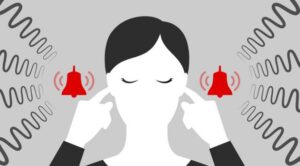Hearing loss is very common. It is estimated that one in every five people have it. Many people consider hearing loss normal with age and do not feel it is necessary to have it evaluated.
Although hearing loss may be due to a benign cause, it may be the symptom of a medical disorder. For example, a skin cyst of the ear drum (cholesteatoma) may expand into the ear and block the conduction of sound to the inner ear. Or a growth on the hearing nerve (schwannoma) may be blocking the signal of sound from reaching the brain. If left unchecked, these problems can progress to serious medical problems like herniation of the brain (encephalocele), meningitis, or increased brain pressure (hydrocephalus).
In other cases, hearing loss may have a correctable cause. Something as simple as ear wax may be removed to improve hearing. Or the hearing bones (ossicles) may be stuck (otosclerosis) and a simple surgery (stapedotomy) may drastically improve the hearing.
Sometimes, hearing loss may progress without treatment. Fluid buildup in the inner ear (Meniere’s syndrome) may cause episodes of hearing loss. If not treated promptly, significant hearing loss may occur and be permanent.
Even if a hearing loss is due to a totally benign cause, a hearing test may surprise you with the amount of hearing loss you are suffering and the potential benefit to be had with a hearing aid.
- How do you know if you have hearing loss?
- Do you notice trouble using the telephone?
- Is it hard to follow conversations with two or three speakers (cocktail party effect)?
- Do you ask people to repeat themselves? Are others complaining about the volume of the T.V.?
Whether it’s a presenting symptom of a medical problem, disability associated with failure to treat promptly, or simply curiosity about correctable causes of hearing loss, there are many reasons to have your hearing evaluated. At the Dallas Ear Institute, there are professionals to help you know more about your hearing loss. schedule an appointment.



